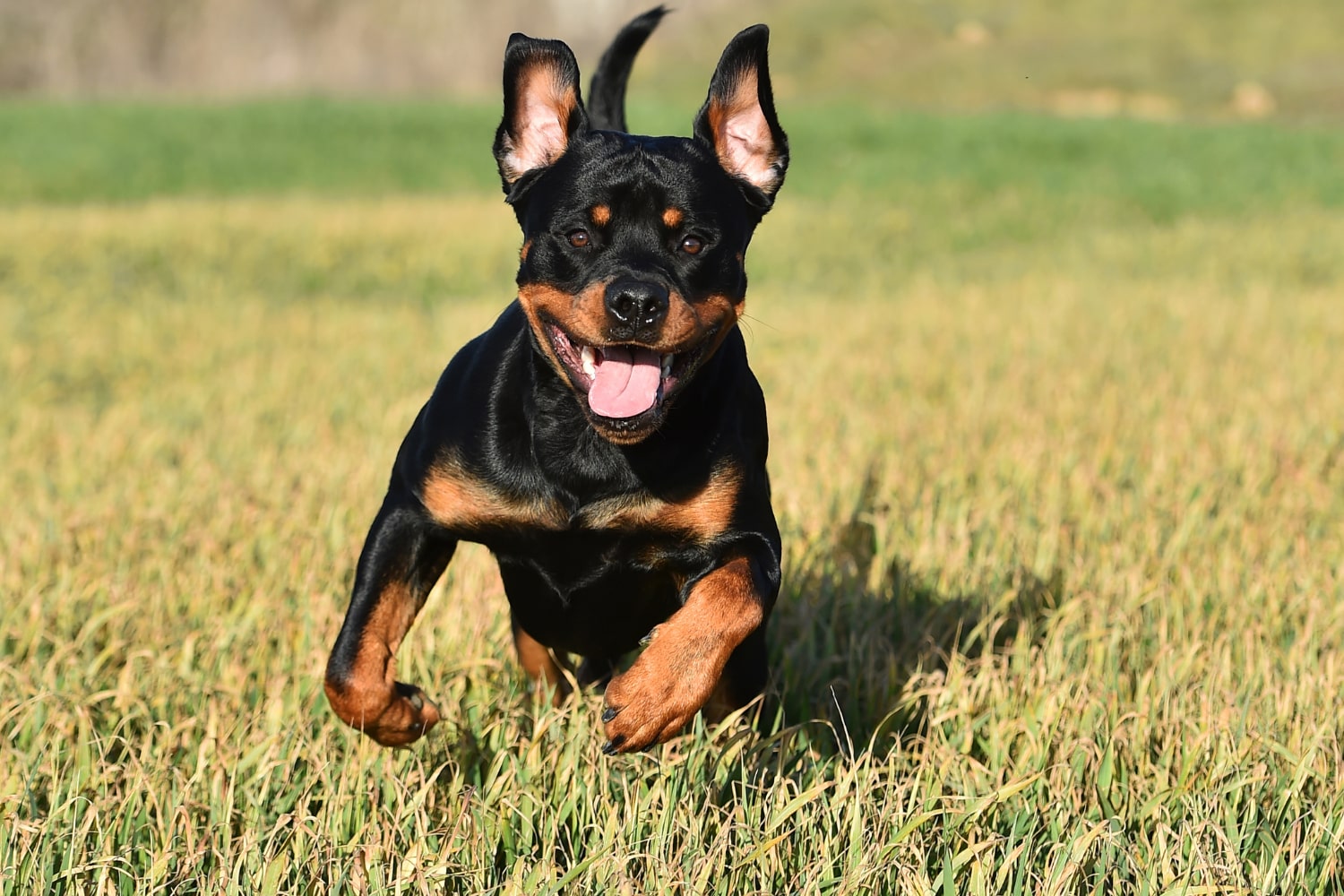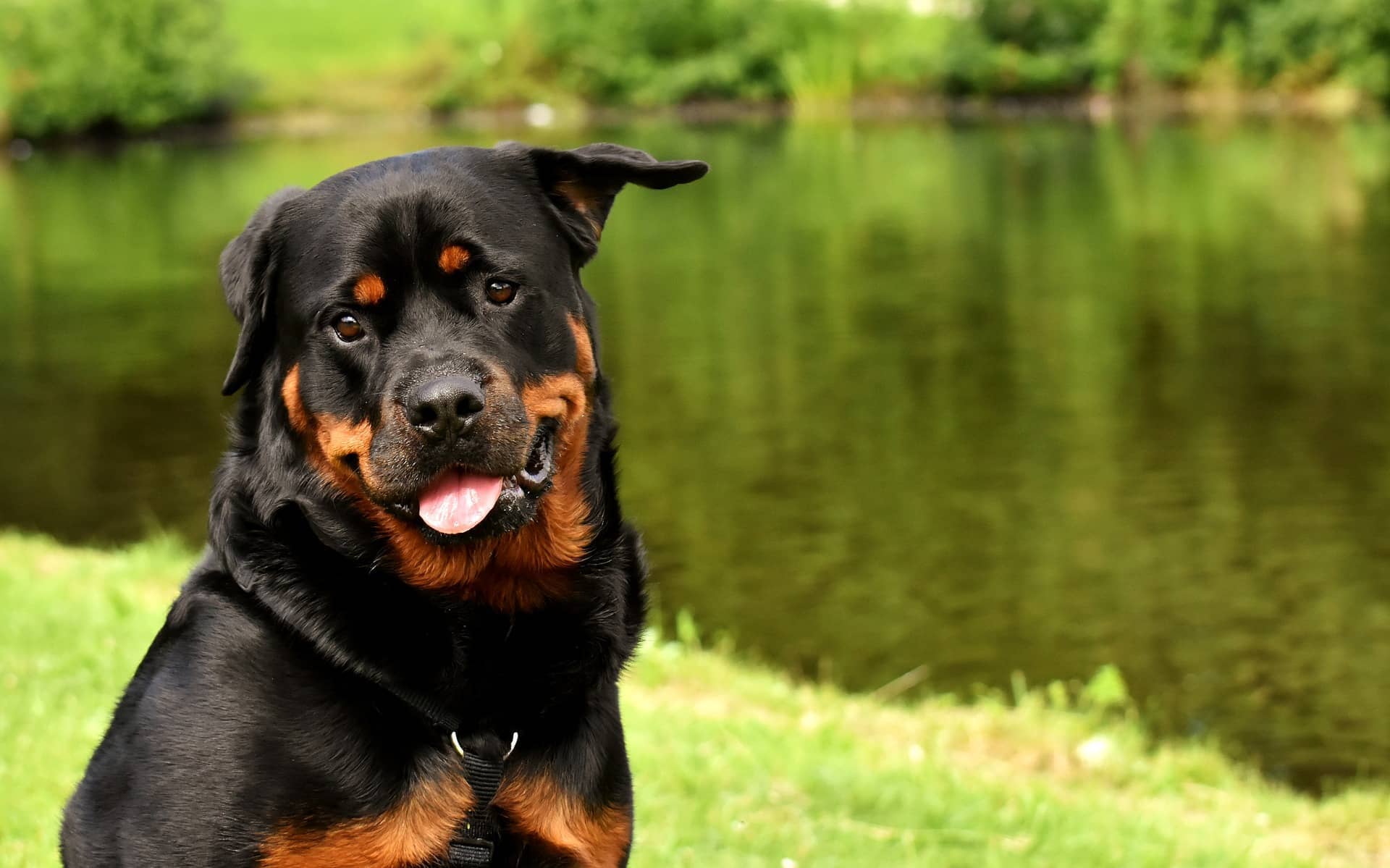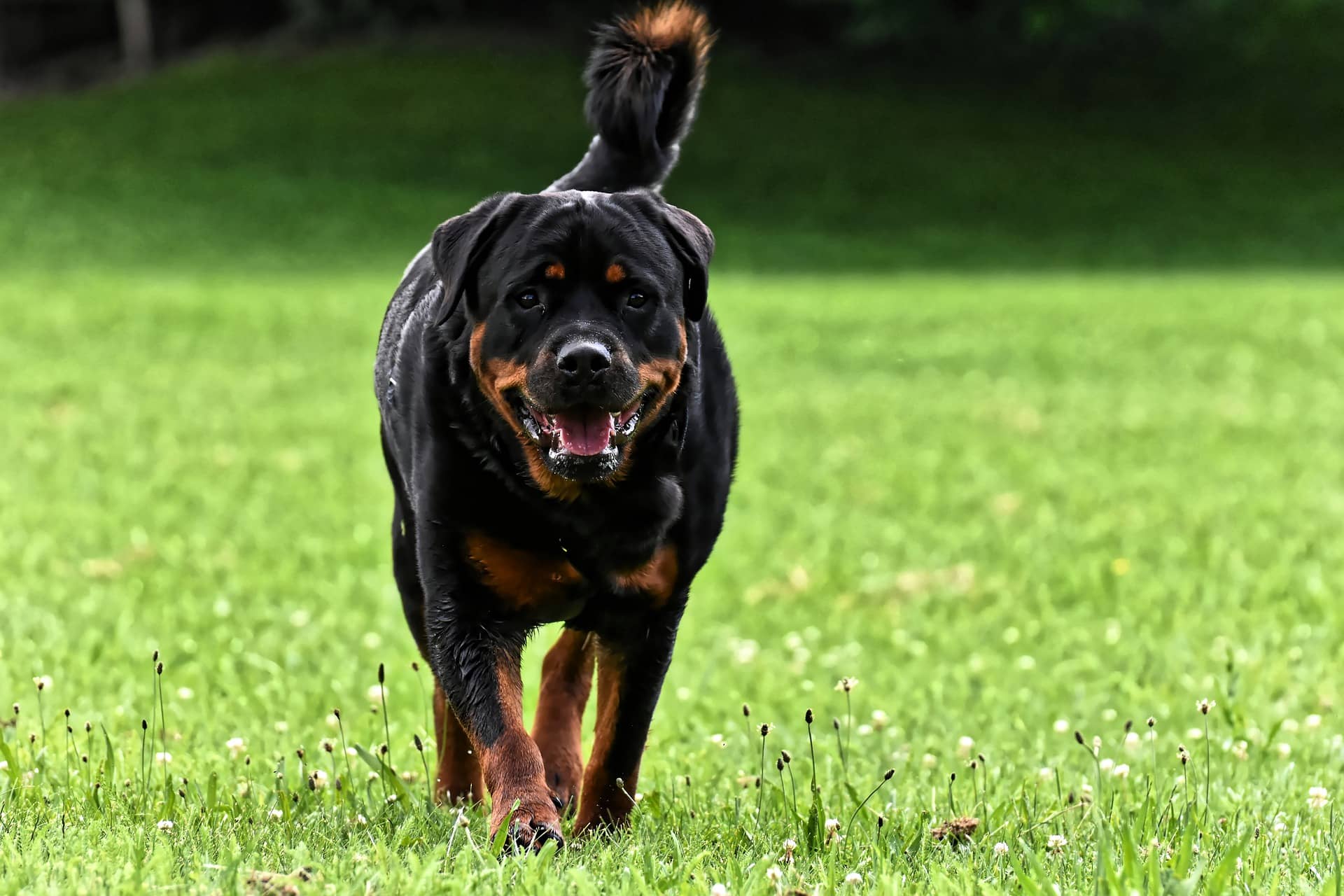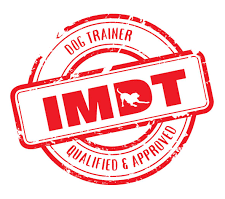Rottweiler
Rottweiler dog training can be hugely rewarding! A well-bred Rottweiler is robust and athletic, possessing a combination of power, strength, agility, and endurance. This makes it a highly valued breed for both its working capabilities and as a pet. Their temperament and intelligence makes them an ideal breed choice for various jobs, including customs, military and police work, Schutzhund trials, therapy dogs, tracking, carting and obedience , herding, and all other kinds of protection duties. Giving your dog a ‘job’ can do wonders for their mental stimulation. In the home, consider teaching your dog to ‘find your toy’ by hiding their favourite toy once hidden say ‘find your toy’ and rewarding them with a game as soon as they find it.
Rottweiler Dog Training And Things To Consider
Your Rottweiler dog training needs to commence early, as Rottweiler puppies will begin to display their natural abilities from a very young age. These are abilities that we need to manage, satisfy, and sometimes amplify. When you are selecting your puppy, you’ll notice differences between the behaviour of each puppy, giving you an indication of each pup’s individual characteristics and potential abilities. Watch how each pup interacts with their siblings and mother. Do they play nicely or does one puppy seek conflict with another? All of these interactions will provide you with an idea of your puppy’s potential character traits. Once you’ve selected your new Rottweiler, be prepared to commence your Rottweiler dog training as soon as you take your dog home.
Practice consistent training with your Rottweiler. Reward-based training is one of the most positive and effective ways to train. Use positive reinforcement, such as a small piece of cheese or tasty treat coupled with lots of praise which is provided as soon as your dog or puppy obeys the command.
Rottweilers are a large, strong breed, meaning leash training is a must. A Rottweiler puppy who pulls on the leash is a problem, but a fully grown Rottie who pulls on his/her leash is a nightmare! We believe that training is the best way to develop and strengthen a healthy and close bond between you and your dog, it opens up the lines of communication between the two of you helping to establish acceptable guidelines and boundaries for your dog to follow.
If you are going to become the parent of a Rottweiler then putting time into training is essential. Early socialisation and basic obedience training are non-negotiable – they simply must be done.
The 3 Cs: Clear, Consistent, Cues!
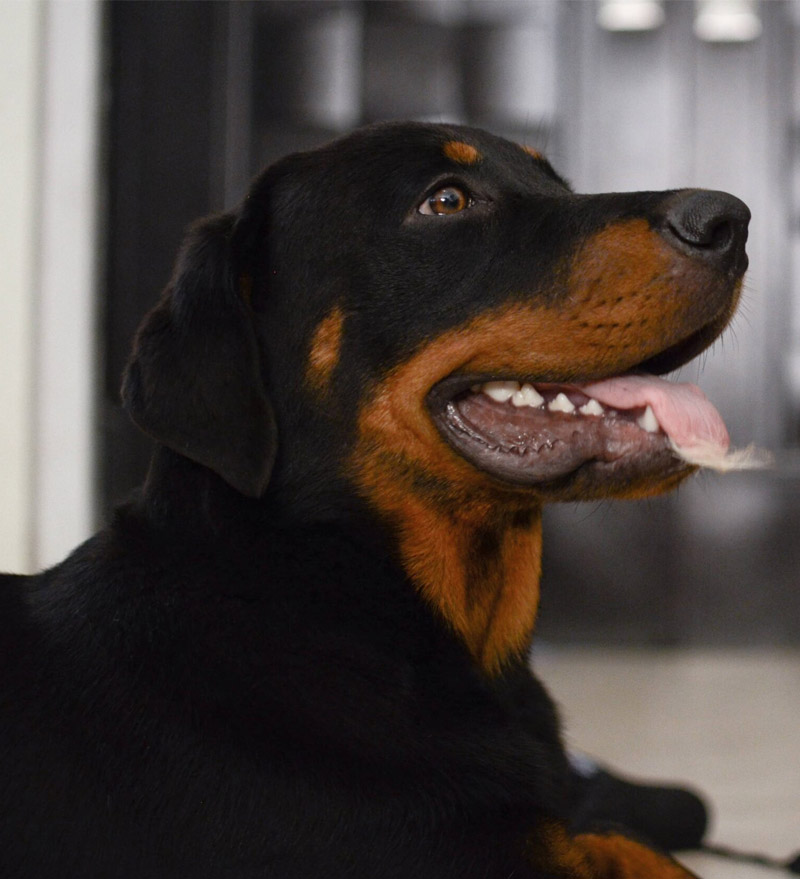
Training your Rottweiler means incorporating a combination of exercise and mental stimulation into your daily routine. In order to be effective you’ll need to stick to certain basic rules which include the 3Cs. Be clear and have a clear set of commands that everyone can use. English is a foreign language to your dog so using “down” and “drop” for the same action will confuse him. Decide on your command words and stick the list to the fridge door so the family knows the correct cues. Apply all house rules consistently. No feeding from the table means just that 7 days a week! Use cues, letting your voice tone guide your dog, and use verbal cues to mark good and bad behaviour. Let your Rottweiler know he’s about to make the wrong choice with a short sharp “Uh no”, followed by “Good Boy” when he does as he’s asked.
By managing all of the above your Rottweiler will be physically and psychologically healthy. Structure in rising, maintaining and fulfilling your Rottweiler’s need is essential to his existence. Adapt to the way your Rottweiler is and the relationship between you and your dog is sure to be successful!
Need some help with your Rottweiler dog training? At Royvon, we are more than happy to help! We have several training options to choose from, including 1-2-1 sessions and residential stays. Please get in touch to find out more about these, and discover the one that is best for you and your dog.
Want to learn more about different breeds of dogs? What about these posts on Siberian Huskies or Jack Russell Terriers?

